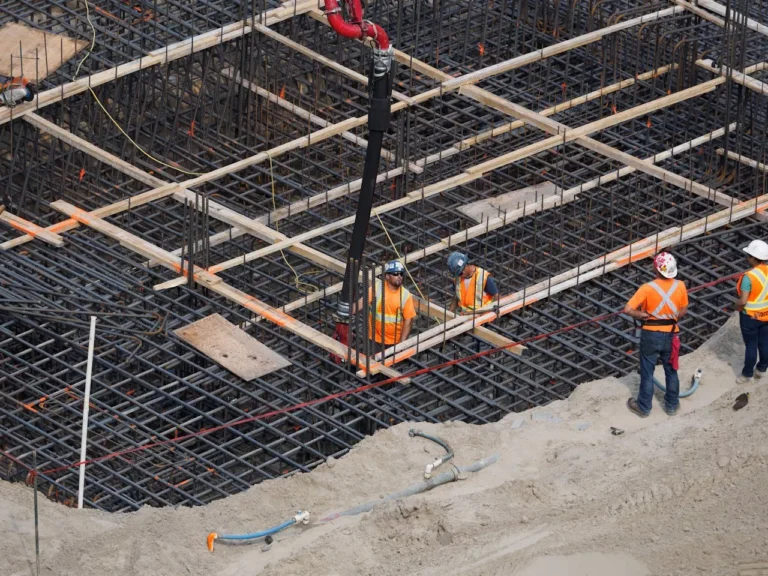
ENR Names Granite Number One in Highways for Fifth Year Running
Granite , one of the largest diversified infrastructure contractors and construction materials producers in the United States, has once again been recognized as the nation’s top highway contractor. For the fifth consecutive year, Engineering News-Record (ENR), the construction industry’s most respected trade publication, has ranked Granite No. 1 in the Highways category of its 2025 Top 400 Contractors List. This recognition highlights Granite’s continued excellence, market strength, and leadership in shaping the future of American infrastructure.
ENR’s Industry-Leading Benchmark
The ENR Top 400 Contractors List has long served as the gold standard for evaluating performance across the U.S. construction industry. Each year, ENR conducts a detailed analysis of the largest public and private companies, ranking them by annual revenue and market specialization. The rankings cover diverse market segments including transportation, power, commercial, industrial, environmental, and infrastructure construction.
To be recognized in this annual listing, contractors must demonstrate not only financial strength but also operational expertise and successful delivery of large-scale projects. Granite’s fifth straight No. 1 ranking in the Highways category reflects its unparalleled ability to design, construct, and maintain complex roadway projects that are critical to national mobility, safety, and economic development.
ENR’s recognition also underscores the increasing importance of infrastructure investment in the United States. With the federal government’s continued emphasis on transportation modernization, particularly through the Infrastructure Investment and Jobs Act (IIJA), highway contractors are playing a pivotal role in upgrading the nation’s roadways, bridges, and transit systems. Granite’s consistent leadership positions the company as a vital partner in advancing these national priorities.
A Legacy of Leadership in Highway Construction
Founded in 1922, Granite has built a century-long reputation for delivering high-quality infrastructure projects across the United States. Highways have long been at the heart of Granite’s operations, serving as both a cornerstone of its portfolio and a driver of economic growth in the communities it serves.

From major interstate expansions to complex urban mobility projects, Granite has consistently demonstrated its expertise in managing large-scale, technically challenging highway construction. The company’s ability to innovate in areas such as sustainable paving materials, advanced construction technology, and collaborative project delivery models has set it apart from competitors.
Kyle Larkin, President and CEO of Granite, emphasized the significance of ENR’s recognition:
“It’s an honor to be recognized by ENR as the nation’s leading highway contractor and among the top 25 on the ENR Top Contractors List. This achievement reflects the relentless dedication and hard work of our people, driven by a company-wide commitment to safety and sustainability. We’re grateful for ENR’s recognition and energized to keep delivering meaningful, lasting results through our work.”
Larkin’s remarks reflect the culture of excellence that Granite has cultivated, one where success is measured not just in rankings or revenue, but in long-term impact on people, communities, and the environment.
Safety and Sustainability at the Core
Granite’s leadership in highway construction extends beyond technical execution—it is deeply rooted in a commitment to safety and sustainability. The company has consistently invested in creating safer worksites, adopting advanced safety training programs, and leveraging technology such as drone surveying and real-time monitoring to minimize risks for workers.
Sustainability also plays a central role in Granite’s operations. The company has pioneered the use of recycled asphalt pavement (RAP), warm-mix asphalt technologies, and other eco-friendly construction practices that reduce carbon emissions and conserve natural resources. By integrating sustainable materials and processes into highway projects, Granite not only meets but often exceeds federal and state environmental standards.
Moreover, Granite’s focus on sustainability aligns with the growing demands of government agencies, communities, and private clients who expect infrastructure to be built with long-term environmental stewardship in mind. This alignment has helped Granite secure repeat business, strengthen client trust, and lead the industry in setting new benchmarks for sustainable infrastructure.
A Workforce Built for Excellence
Behind every successful highway project is a team of skilled professionals who bring expertise, innovation, and dedication to their work. Granite’s workforce—spanning engineers, project managers, skilled trades, and operations leaders—forms the backbone of its success.
The company has invested heavily in workforce development, creating training programs that equip employees with the latest construction technologies, sustainability practices, and leadership skills. In addition, Granite has been recognized for fostering an inclusive workplace culture where diverse perspectives are valued and collaboration is encouraged.
Granite’s ability to recruit and retain top talent in a competitive industry has been a key factor in its consistent top ranking. By empowering its people to innovate and excel, Granite ensures that its projects meet the highest standards of quality, safety, and client satisfaction.
Driving Innovation in Infrastructure
Innovation is another hallmark of Granite’s success. The company has embraced digital transformation by integrating Building Information Modeling (BIM), advanced project scheduling tools, and data analytics to improve efficiency and project outcomes.
On the materials side, Granite continues to push the boundaries of construction technology with its research into next-generation paving solutions, smart road technologies, and sustainable construction materials. These innovations not only improve project performance but also contribute to reducing life-cycle costs for clients and taxpayers.




